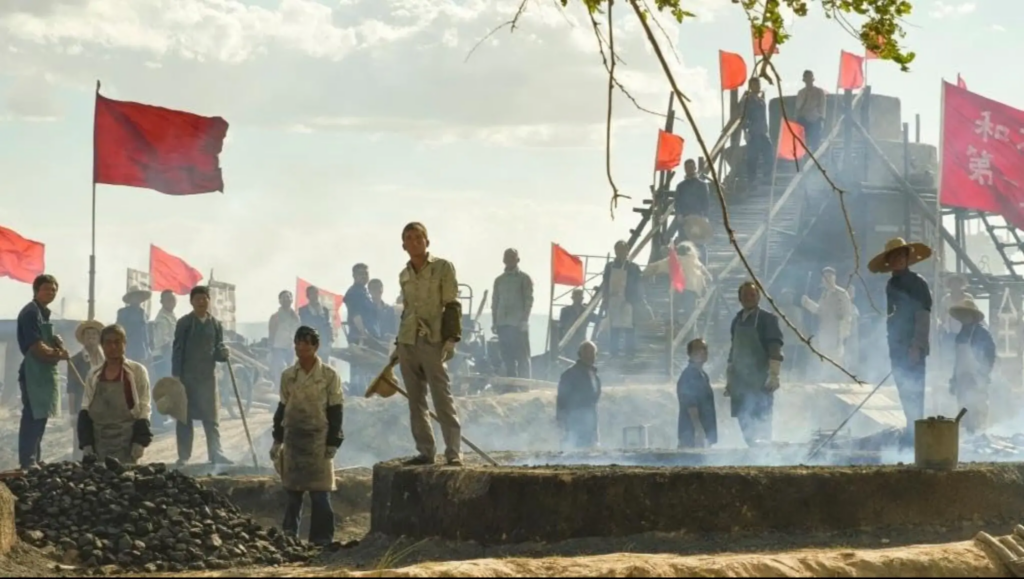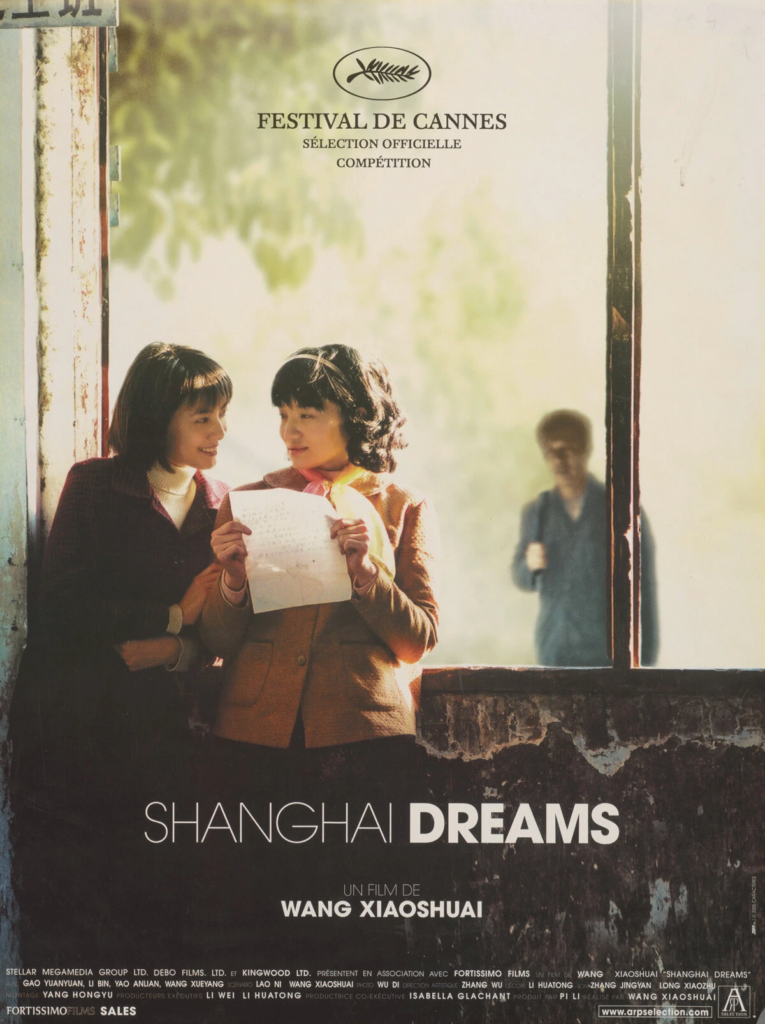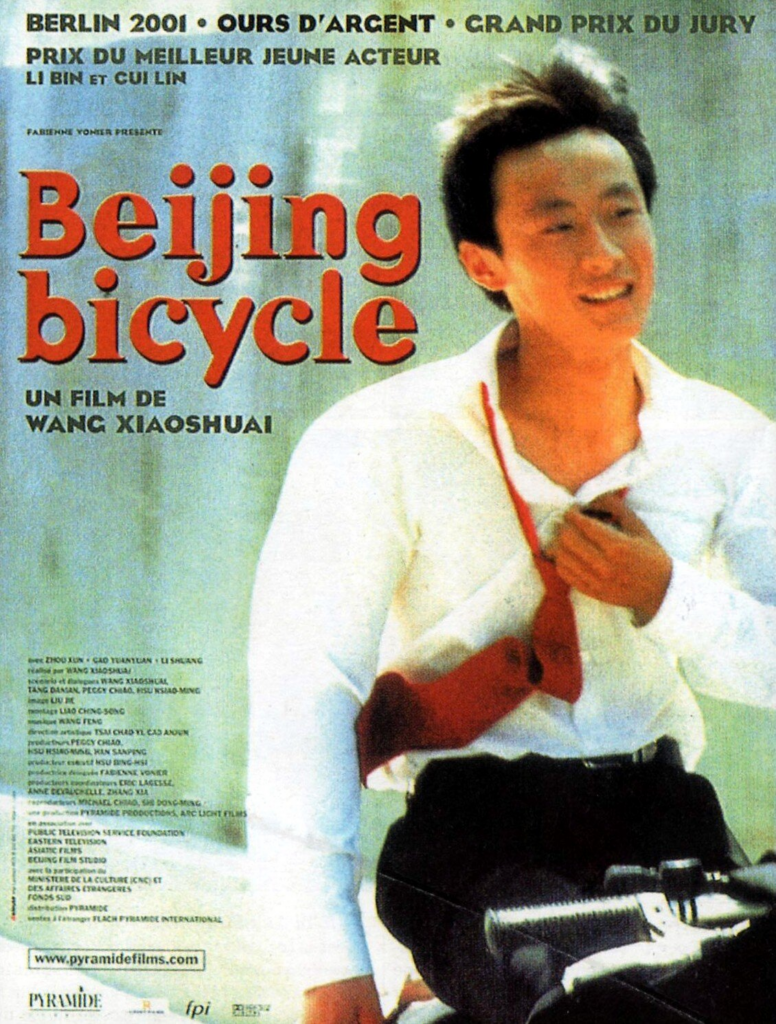Wang Xiaoshuai is among the few Chinese artists who refuse to bend to state limitations on the subjects they explore.
BY Li Yuan / Published on New York Times

“I always strive for creative freedom,” Wang Xiaoshuai said. “But it’s become impossible because of the circumstances.”Credit…Olivia Lifungula for The New York Times
China’s film industry was operating under a planned economy when Wang Xiaoshuai graduated from Beijing Film Academy in 1989. Only a few studios, all state-owned, were allowed to make movies.
Eager to start careers as filmmakers, Mr. Wang and some friends scraped together about $6,000, borrowed a camera and persuaded a company to give them film for free. His directorial debut, “The Days,” about a despondent artist couple, was screened at film festivals in Europe in 1994. The British Broadcasting Corporation listed it as one of the 100 best films of all time.
But the Chinese film authorities weren’t happy. They barred Mr. Wang from working in the industry because he had screened “The Days” at foreign film festivals without their permission.
Mr. Wang, like many other artists in China, found ways around the ban, and he went on to become one of the country’s most acclaimed directors as the restrictions loosened. But last month, history repeated itself. When he screened his latest film, “Above the Dust,” at the Berlin International Film Festival, his company got a call from China’s censors. He was ordered to withdraw it or risk severe consequences.

Mr. Wang’s “Above the Dust” explored a sensitive subject: land reform in 1950s China.Credit…Lemming Film
The creative talent in China’s film industry is struggling under tightening censorship. The suffocating restrictions remind veterans like Mr. Wang of the harsher days when the Communist Party more strictly controlled speech and artistic expression.
The reversal is in line with what has happened in many other creative industries as the party has intensified its control over the public’s hearts and minds. Publishers have a hard time getting their books approved. Musicians and comedians have been banned for their lyrics and skits, or sometimes for just a single social media post. Even hip-hop music must reflect a positive energy, nothing sad or dark.
Literature and art should “serve the people and socialism,” China’s top leader, Xi Jinping, proclaimed in 2014. “In the core socialist values, the deepest, fundamental and most eternal is patriotism,” he said. “Works imbued with patriotic sentiment are most effective in rallying the Chinese people to unity and struggle.”Mr. Xi’s dictate has since set the tone for Chinese cinema.
In 2018, the supervision of the film industry was transferred from a government agency to the party’s department of publicity, making it essentially an arm of the state’s propaganda mechanism.
“The choice is clear for a lot of film directors,” said Michael Berry, a professor at the University of California, Los Angeles. They can get in line and make propagandistic films, which means they could have successful careers commercially, he said. “Or you turn your back on the Chinese market, then become a dissident director and work internationally.”
Mr. Wang decided to screen “Above the Dust” in Berlin after receiving more than 50 censorship instructions in about 15 months, with no hope of getting the green light. The movie is about descendants of a landlord in the land reform era of the 1950s, a sensitive subject in China because millions of landlords were persecuted or killed and their land was confiscated by the state. The censors demanded that Mr. Wang cut all references to the campaign.



A sampling of Mr. Wang’s films. Because he screened “The Days” at foreign film festivals without Beijing’s permission, he was barred from working in the industry.
Sometimes the censors kill projects for no obvious reasons, it seems. Circulating on the Chinese internet are various lists of films that were killed or whose releases were postponed or revoked. The authorities never explained their rationale. Sex and violence are apparently a no-go. Anything can be considered sensitive: crime, corruption, poverty, history, superstition or simply sadness. Even propaganda films that were backed by the police and anticorruption agencies could end up failing the test because crime and corruption reflect dark aspects of the society.
“I always strive for creative freedom,” said Mr. Wang, 57. “But it’s become impossible because of the circumstances.” He said he and his peers often talked about whether the films they considered making could pass the censors. “The thought hinders you all the time,” he said. “It’s very painful.”
Mr. Wang has always been a maverick in Chinese cinema, Mr. Berry said. Still, the professor was surprised to find that to get around the censors, critics used garbled text to refer to “Above the Dust” on Chinese social media.
Born in Shanghai in 1966, Mr. Wang moved with his parents to the backwater province of Guizhou in southwestern China when he was 2 months old. It was part of Mao Zedong’s campaign to develop industrial and defense facilities in the country’s interior, and it involved relocating millions of people. Mr. Wang’s family stayed in Guizhou until he was 13. The experience deeply influenced his work. He has focused on these people’s lives because, he said, he wanted to show their hardship. Along the way, he said, he wanted to explain what made Chinese the way they are today.
Mr. Wang’s work was influenced by the French New Wave. He and directors such as Jia Zhangke and Lou Ye were known as leading figures in the “sixth generation movement” of Chinese cinema in the 1990s. They made underground movies outside the state-run film bureaucracy and heeded few official boundaries. When they were barred from working in the industry, they made independent movies for overseas markets.

Mr. Wang’s career began during a time of tight state control of the film industry, which was followed by a period of relative openness. “I didn’t expect that after 30 years, I would end up back in the same place,” he said. Credit…Olivia Lifungula for The New York Times
In 2003, the authorities invited Mr. Wang and others to talk about the future of Chinese cinema. It was the only time in his memory that filmmakers sat down with regulators on a somewhat equal footing. The government hoped to make the industry more market-driven and wanted their participation.
The next year, Mr. Wang had his first film approved in China. The censorship process took only two months. His movies never did well at the box office, but he kept going, making one every two to three years. In 2019, he released “So Long, My Son,” about the impact of China’s one-child policy on two families. It won major awards at the Berlin Festival and the Golden Rooster Awards, the most prestigious in Chinese film.
Under Mr. Xi’s leadership, there was a period of romance between China and Hollywood, culminating in the 2016 movie “The Great Wall,” directed by Zhang Yimou and starring Matt Damon. But increasingly, the “main theme films” that promote official sentiment dominate Chinese cinema. In 2022, Mr. Zhang made a movie about a Chinese sniper who killed and wounded more than 200 Americans in the Korean War, a popular genre amid worsening U.S.-Chinese relations.
“We cannot turn Chinese cinema into an outlet exclusively for main-theme films,” Jia Zhangke, the director who made art house classics such as “Xiao Wu” and “Platform,” said in 2022. It can take two or three years for experimental films made by younger directors to obtain screening permits. “This uncertainty brings great anxiety to the industry,” he added. “Investors are reluctant to invest in these films, and our talent pool will encounter problems.”
“Any Chinese filmmaker knows how things have changed in the past few years in terms of censorship and self-censorship,” said Mr. Wang, the director. “The atmosphere is increasingly depressing and cautious.”
That was why he decided to defy the censors by screening his new film in Berlin — to push for change even if it means being punished.
“It’s my duty as a filmmaker,” he said. “I’m only responsible for films.”
Li Yuan writes the New New World column, which focuses on the intersection of technology, business and politics in China and across Asia. More about Li Yuan
